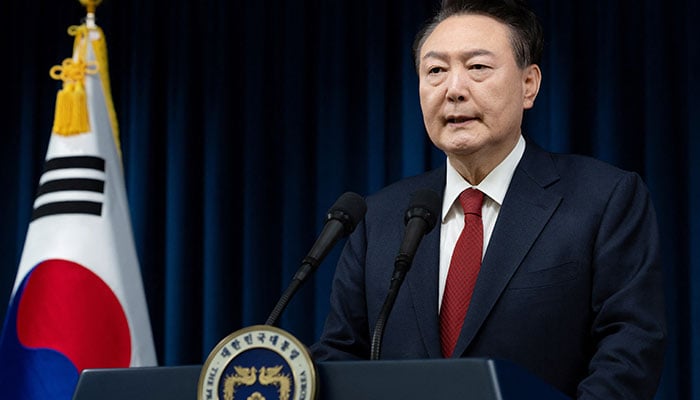Health
PSX extends losses amid energy sector concerns
字号+ Author:Smart News Source:Travel 2025-01-08 23:50:06 I want to comment(0)
The capital market extended its downward trend on Tuesday as profit-taking, driven by mutual fund redemptions, and pressure on energy stocks dampened investor confidence. Concerns about circular debt in the gas sector and the government’s escalating debt levels further contributed to the cautious market sentiment. The Pakistan Stock Exchange's (PSX) benchmark KSE-100 Index showed early gains, climbing 588.29 points, or 0.51%, to an intraday high of 116,843.41. However, selling pressure dragged the index to a low of 113,677.5, reflecting a decline of 2,577.62 points, or -2.22%, from the previous close. “Profit-taking driven by redemptions at some major mutual funds," said Muhammad Saad Ali, Director of Research at Intermarket Securities Ltd. "Pressure in energy names driven by news of diversion of RLNG to residential consumers, which could lead to a fresh buildup in circular debt,” he added. The diversion of re-gasified liquefied natural gas (RLNG) to the domestic sector surged to 450mmcfd in January 2025, compared to 250mmcfd in December 2024, under Sui Northern Gas Pipelines Limited’s jurisdiction. This increase is expected to exacerbate the circular debt in the gas sector. The current average domestic tariff is Rs1,250 per MMBTU, while the RLNG tariff stands at Rs3,600 per MMBTU. This Rs2,350 per MMBTU differential will directly contribute to the growing circular debt, raising concerns about the financial strain on gas utilities. Finance Minister Muhammad Aurangzeb, speaking at a Senate Standing Committee meeting on Monday, projected a strong current account surplus for FY25 while ruling out any desperate measures that could jeopardize economic stability. “Three years ago, the government pressed the growth accelerator, straining the balance of payments,” Aurangzeb said. “But no matter how much pressure there is now, we will not repeat that mistake.” The minister dismissed liquidity concerns, clarifying that there had been no complaints about letters of credit (LCs) being opened in the last 10 months. “No foreign company has been stopped from sending profits abroad, which shows there’s no pressure on the currency,” he noted. Highlighting foreign interest in Pakistan’s economy, Aurangzeb mentioned significant investment commitments from major global players, including Saudi Aramco, Chinese firm Norinco, and electric auto giant BYD. The State Bank of Pakistan (SBP) reported on Monday that the government’s total debt increased by Rs1.452 trillion, or 2.1%, in the first five months of FY25, reaching Rs70.366 trillion as of November 2024. This rise is attributed to government spending exceeding revenue collection and external debt repayment requirements. As of June 30, 2024, the total debt stood at Rs68.914 trillion. The debt rose 1.8% month-on-month and 11% year-on-year (YoY) by the end of November. Domestic debt grew by 3% during July to November FY25, reaching Rs48.585 trillion, marking an 18% YoY increase. Meanwhile, external debt rose marginally by 0.11% to Rs21.78 trillion in the same period, though it declined 2.91% YoY and 0.5% month-on-month. The government’s rising debt levels, combined with pressures in the energy sector, have raised concerns about fiscal sustainability. These issues come as Pakistan prepares for a critical review under the International Monetary Fund’s (IMF) Extended Fund Facility (EFF) to unlock the next tranche of $1 billion in March. The IMF’s proposed levy on gas supplies to industrial captive power plants (CPPs) remains a critical structural benchmark under the EFF. In addition, Pakistan is set to receive $20 billion from the World Bank over the next decade as part of its Country Partnership Framework 2025-35. This funding, pending approval on January 14, will align with the government’s National Economic Transformation Plan, targeting GDP growth, poverty reduction, and infrastructure improvement. Inflation trends showed some respite, with short-term inflation, as measured by the Sensitive Price Indicator (SPI), recording a marginal weekly decline of 0.26% for the week ending January 2, 2025. However, year-on-year inflation remained elevated at 3.97%. Textile exports, a key contributor to the economy, rose by 10% year-on-year in the first half of FY25, reaching $9.9 billion. This reflects resilience in one of Pakistan’s critical sectors despite external challenges. On Monday, the PSX witnessed a significant decline, with the KSE-100 Index closing at 116,255.12, down 1,331.86 points, or -1.13%, from the previous session’s close of 117,586.98.
1.This site adheres to industry standards, and any reposted articles will clearly indicate the author and source;
 Related Articles
Related Articles-
بھٹی گیٹ کا WCLA کا گیڈڈ ٹور
2025-01-08 23:36
-
West Indies arrive in Pakistan for Test series after 18 years
2025-01-08 22:57
-
West Indies arrive in Pakistan for Test series after 18 years
2025-01-08 22:55
-
Neeraj Chopra advises Indian athletes to refrain from doping
2025-01-08 22:32
 User Reviews
User Reviews Recommended Reads
Recommended Reads Hot Information
Hot Information- شِکارپور میں گیسٹ ہاؤس پر ڈاکوؤں کے حملے میں تین افراد ہلاک
- Neeraj Chopra advises Indian athletes to refrain from doping
- Saim Ayub to receive medical treatment in London
- Lionel Messi skips Presidential Medal ceremony with Biden
- Azerbaijan Airlines plane crashes in Kazakhstan, leaving 38 dead, 29 survivors, officials say
- Lionel Messi skips Presidential Medal ceremony with Biden
- Saim Ayub to receive medical treatment in London
- West Indies arrive in Pakistan for Test series after 18 years
- Black boxes of downed Azerbaijani jet recovered as questions mount over Russian involvement. Here’s what we know
 Abont US
Abont US
Follow our WhatasApp account to stay updated with the latest exciting content










